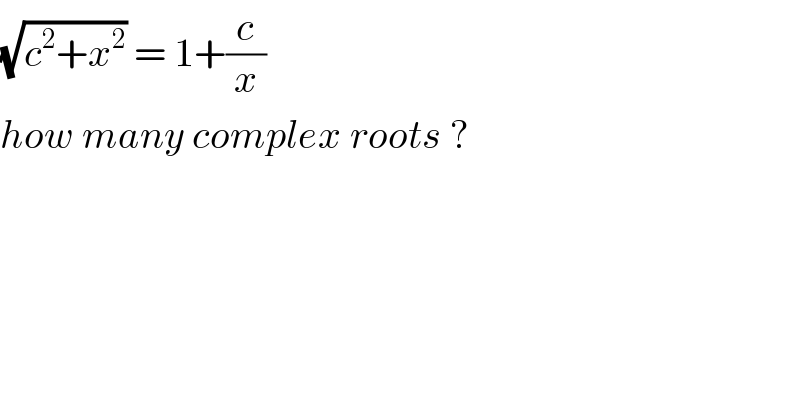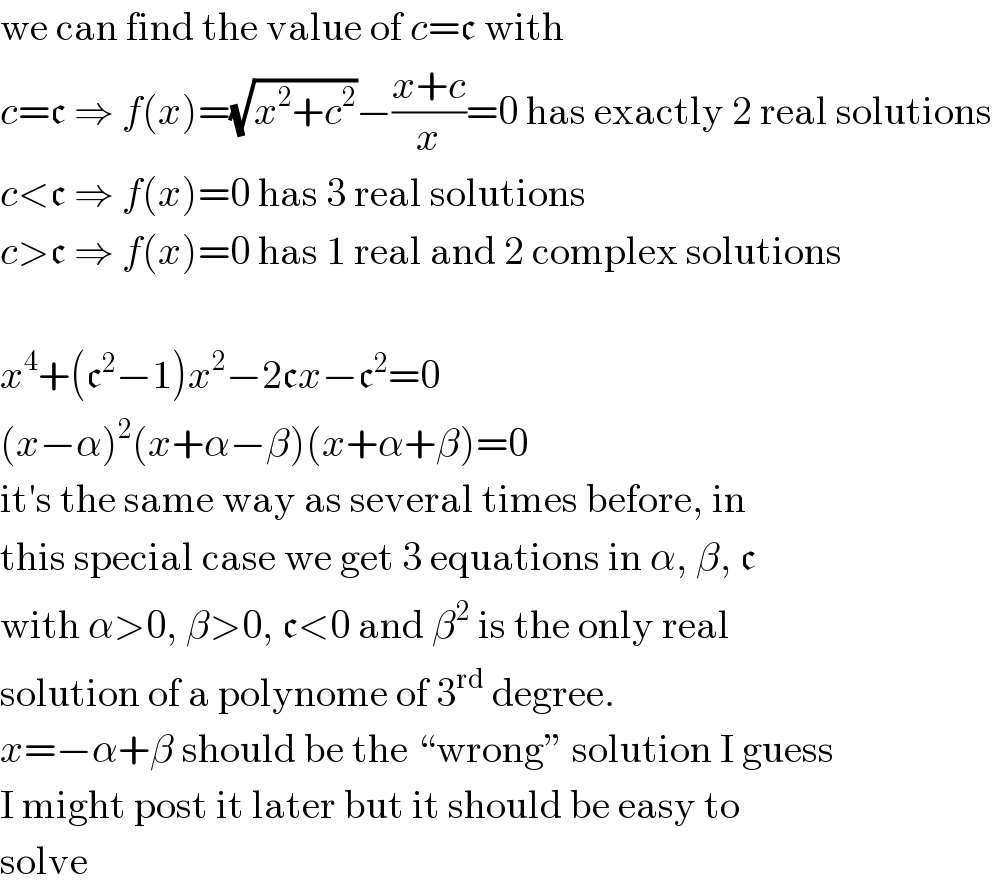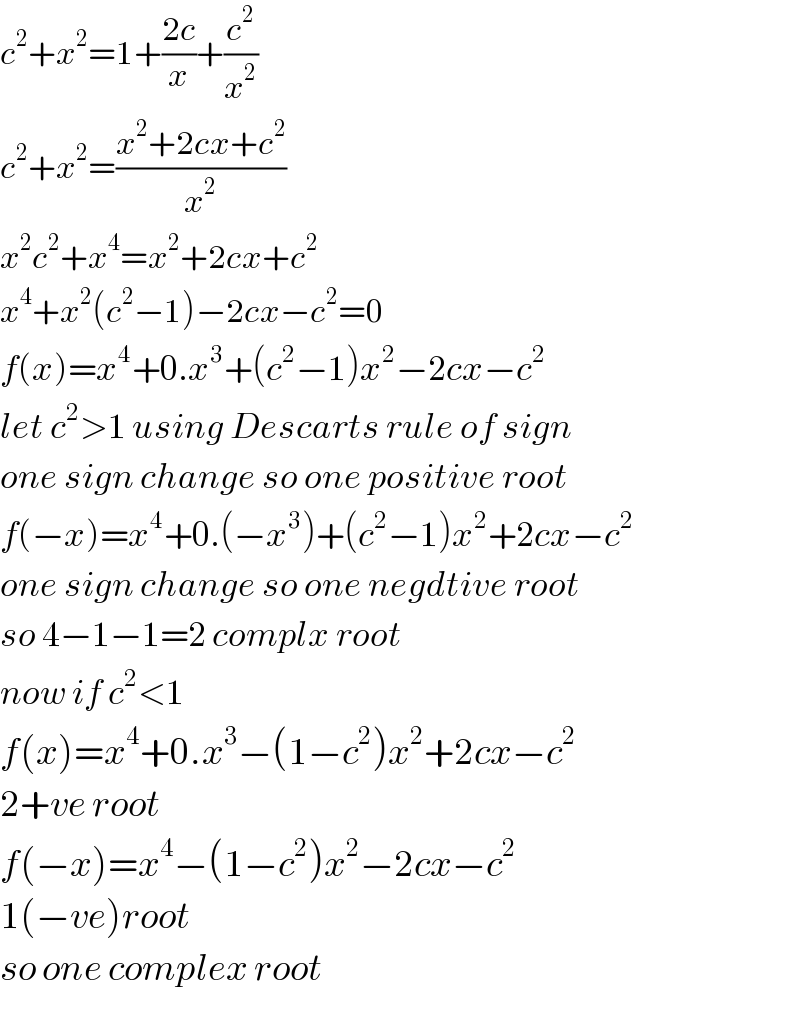
Question and Answers Forum
Question Number 38907 by ajfour last updated on 01/Jul/18

Commented by ajfour last updated on 01/Jul/18

Commented by MJS last updated on 01/Jul/18

Commented by MrW3 last updated on 01/Jul/18

Commented by ajfour last updated on 01/Jul/18

Commented by MJS last updated on 01/Jul/18

Answered by tanmay.chaudhury50@gmail.com last updated on 01/Jul/18

Commented by ajfour last updated on 01/Jul/18

